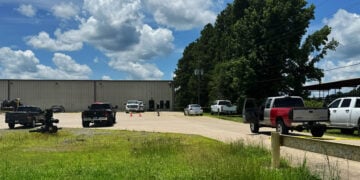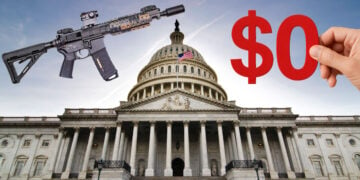Concealed carriers speak much about their EDC (everyday carry) gear and this often revolves around the gun of preference for defensive use. Along with the carry gun individuals often tote a reload for their pistol, an edged weapon, perhaps a less-lethal tool, and perhaps medical gear. These are items that prepared people choose to carry along with other items that almost all contemporary citizens carry daily which typically include keys, a wallet or purse, and, certainly, a smartphone. The phone, which is the most often used device in the modern human’s daily carry, is an item used to stay in contact with friends and family, take pictures, and browse the internet. However, it is also an integral part of communication, which is essential to your ability to protect yourself and others.
Most people today can’t even fathom leaving their phone home, there is a dependency that seems to have emerged as the masses are now addicted to handheld devices. Ironically, I find that many people who are the type to carry a firearm for personal protection are also wired to be self-reliant and often do not feel compelled to carry a cell phone, or even have one at all. At this point, such folks are in the minority, but they still exist. For a concealed carrier a cell phone is a critically important part of your preparedness.
Here are some reasons to always keep your phone on you:
Calling Authorities Post Incident
One important service offered by the smartphone to the armed citizen is the ability to call the authorities immediately following a self-defense use of force. The importance of calling it in, immediately, cannot be overstated. Those who call 911 first are typically seen as the victim in the legal system, so following any use of force, deadly force, or less lethal, you need to call the authorities. Having your phone on you makes this possible.
If you find yourself in a defensive gun use, consider how dire the situation could be if you don’t have your phone on you. In order to call authorities, you will need to leave the scene unless someone else with a phone is nearby. This delay will result in activity that looks more and more suspicious to investigators after the incident. Also consider, what if you need medical services immediately following a violent confrontation for yourself or someone else in your party? The sooner the call is made, the sooner medical professionals can be en route. Your ability to communicate post-incident is critical and the cell phone is your means of doing that.
Communication During Crisis
Another consideration is the importance of communication during an emergency situation. I am no fan of crowds, but if you take loved ones to large venues for concerts, shows, fairs, etc…, then consider the importance of being able to communicate with the rest of your party if you get separated. When attending any sort of large event, always have an action plan. Discuss with your family, “if something happens, we do this.” Designate meetup locations, should you get separated. Being able to call your loved ones during a crisis goes a long way towards fostering everyone’s safety.
Consider that, in the midst of a large-scale crisis, cell reception may go down. Sometimes, however, texting will still work when calling does not, as text messages require far smaller amounts of data to transfer. In the event of a crisis in which the phone lines are not working, try to send a text to those you need to communicate with.
Since texting is now so established in modern life, you can text emergency services such as 911. We have seen this play out during active killer rampages; an example that comes to mind is those trapped in a restroom during the Pulse Nightclub event were sending texts to emergency services so that they could ask for help without making noise.
The Ability to Record
The world has changed dramatically due to the fact that everyone walking the street can now video record anything that happens. It is almost laughable how the natural reaction for people is to record a situation rather than intervene or leave. The mighty video camera in your pocket, however, can serve you well. The immediate reaction to a threat should be, obviously, taking the necessary force options, be it defensive posture and de-escalating or commanding language, less-lethal tools, or, if needed, a lethal response. Having your phone in hand will compromise your ability to do any of these things. However, there are circumstances in which filming the situation will be the best option.
If witnessing a crime, being able to film it (if you can do so safely) is of great benefit to law enforcement. If you are in a safe location and can record the incident, do so. Similarly, if you are witnessing a crime against yourself but in a safe spot, record the incident. If you are watching from the safety of your bedroom window someone stealing your lawnmower in your yard, call 911 and record the incident. Also consider that if you are recording video and things transpire, even if the phone hits the ground or stays in your pocket and does not record video, it will still capture the audio of the situation. This may serve a role in your own legal protection in the aftermath.
Phone Settings to Consider
Like any other tool that plays a role in self-defense, the phone should be set up accordingly. Consider setting up speed dials for emergency services (granted, dialing 911 is easy to do, though under stress everything is more difficult) but also think about other numbers that may be important to call in an emergency. Setting up speed dials can make this process easier under emergency circumstances.
Also, consider the sound and notification settings on your phone. Personally, I like having my phone set to silent so that it only vibrates when I get a phone call or other notification. Consider an incident such as the earlier referenced situation of people hiding and texting; an incoming call will be audible to anyone in the vicinity, including a threat.
The phone is an integral part of preparedness in the 21st Century, so consider this tool as it pertains to your own self-defense.









